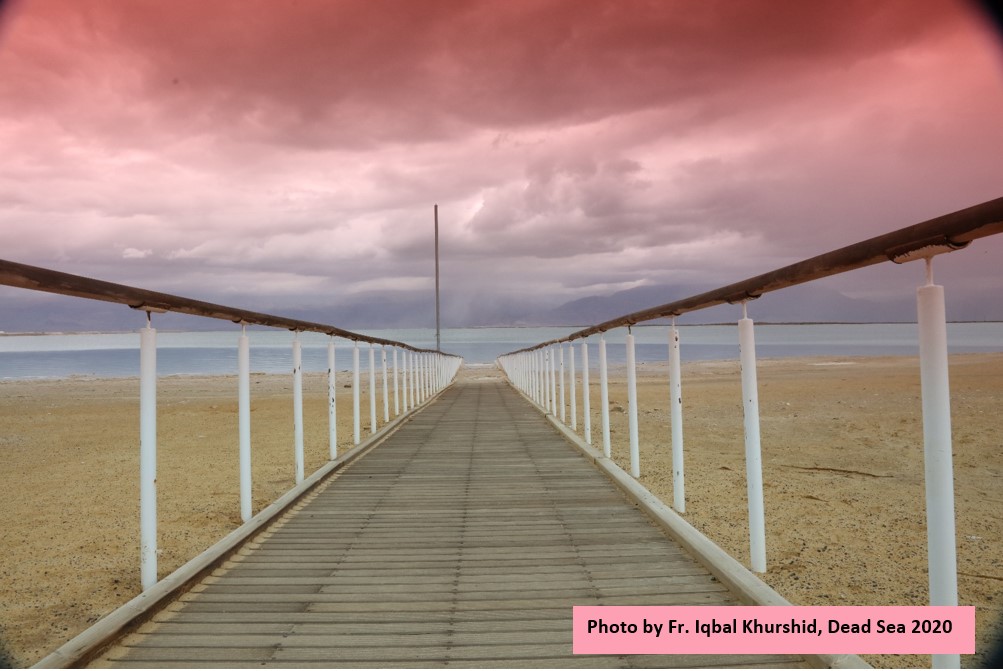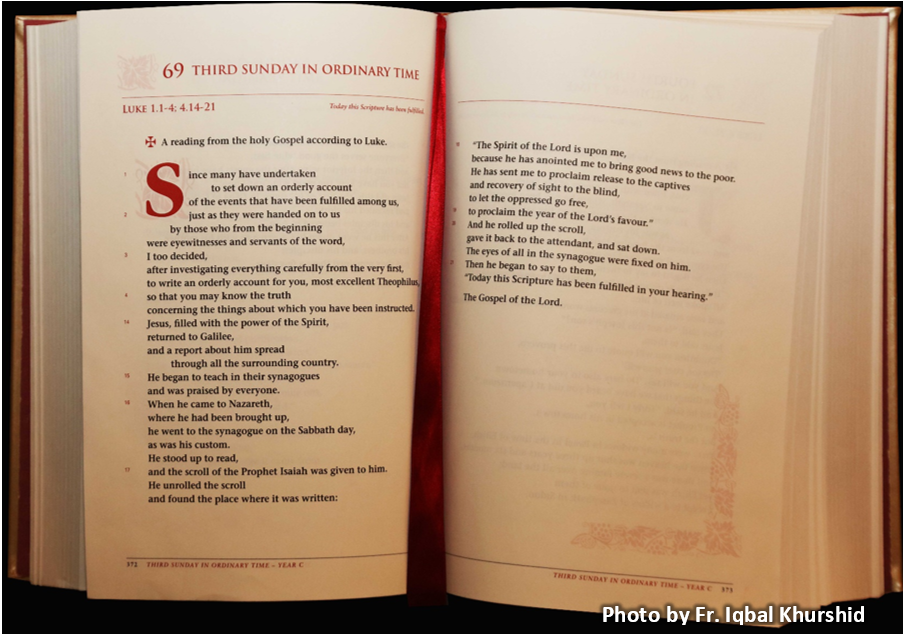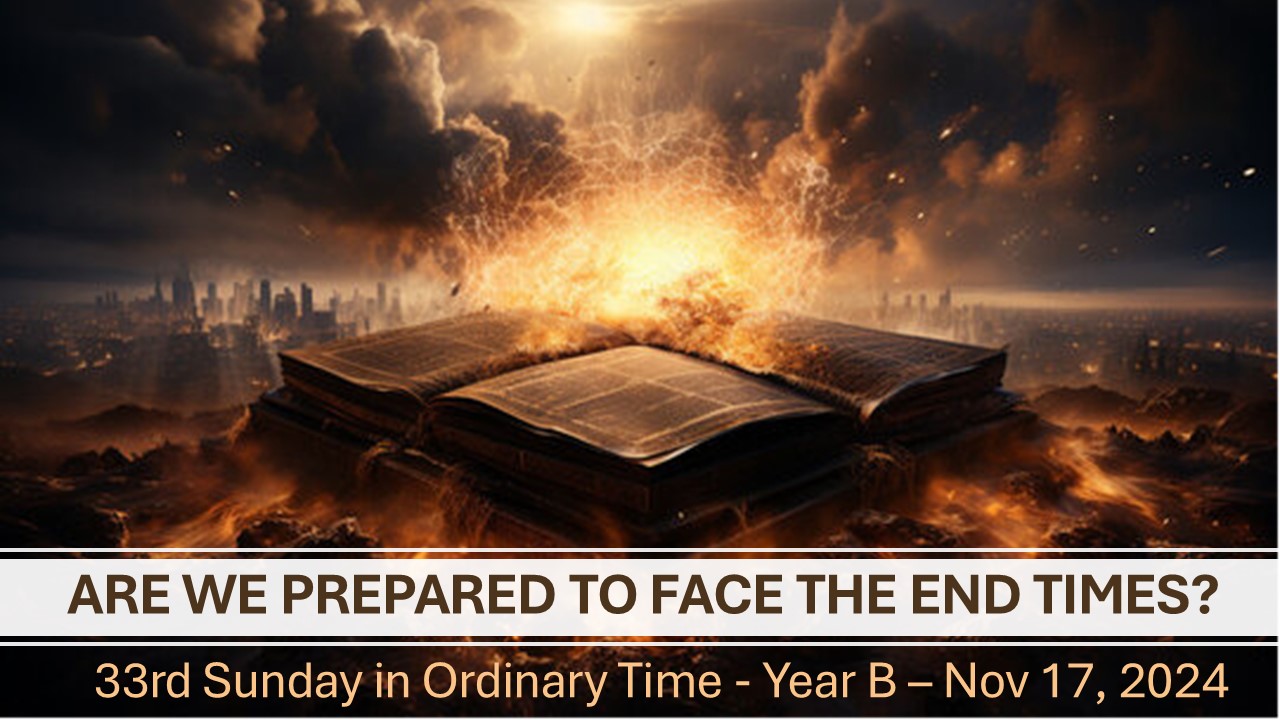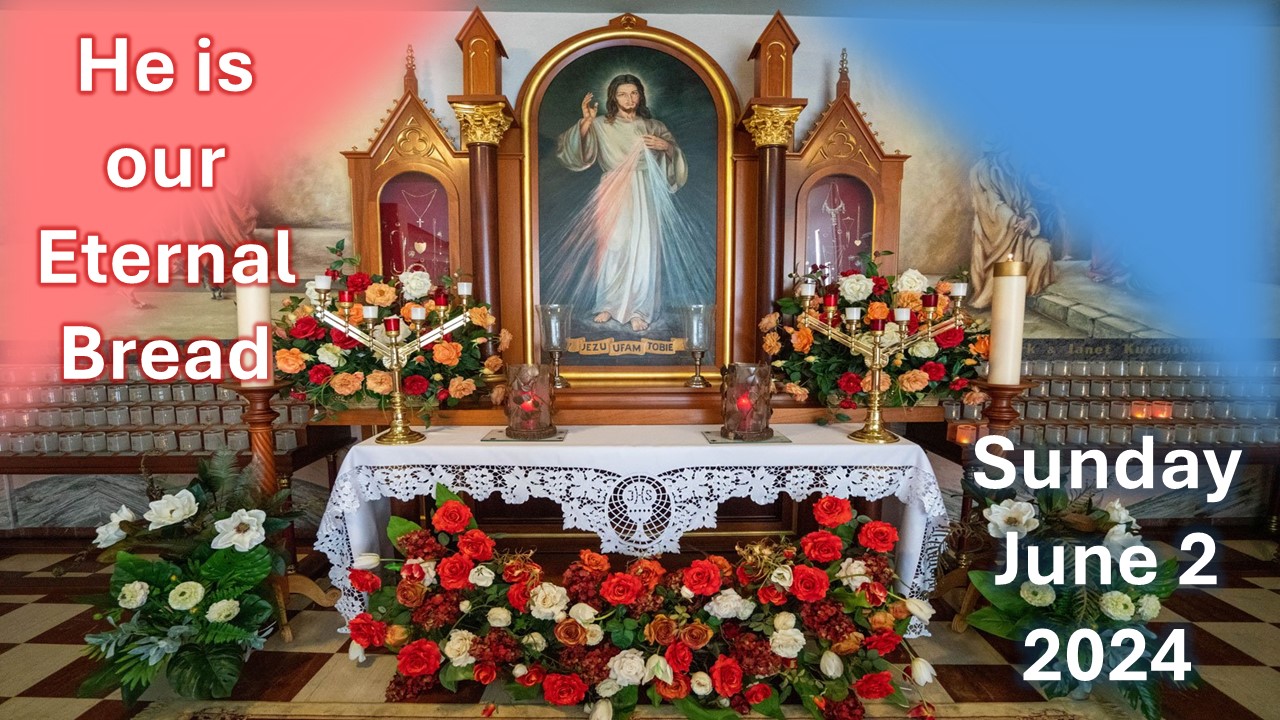
24th Sunday in Ordinary Time Year C ~ September 11, 2022
Consequences of our Actions
For the last three Sundays we have been reflecting on our struggles to enter through the narrow gate to have eternal life and understand our way of living with humility which leads us to salvation because pride kills, but humility makes us rise from nothing to discipleship where we learn to deny ourselves and carry our Cross and to follow our Saviour who died on the Cross to save us. This Sunday we are invited to reflect and examine our actions which always follow consequences. These consequences in the material world and spiritual world have caused lots of problems and suffering. Our actions always remind us to be careful about what we wish for or desire as Bernard Shaw said “There are two tragedies in life. One is not to get your heart’s desire, the other is to get it” And the Book of Ecclesiastes is full of wisdom about it. Let me share a story with you to understand the consequences of our desires and actions.
A young aspirant was sitting at the foot of a tree in the summer heat. Fortunately, or unfortunately, the tree he happened to be sitting under was the Kalpataru tree, (Kalpavriksha also known as kalpataru, kalpadruma, kalpapādapa or karpaga vriksham, is a wish fulfilling divine tree in Indian-origin religions, like Hinduism, Jainism, Buddhism, and Sikhism. It is mentioned in Sanskrit literature from the earliest sources. It is also a popular theme in Jain cosmology and Buddhism), the tree that fulfils all desires, but he did not know this. After a while the heat became scorching and he said, “How I wish somebody would come and fan me!” Right away a young boy came and started fanning him. First, he was very surprised. Then he began to think that whatever he wished for would be granted. So, he said, “This is a young boy. I don’t want him. Let me have a beautiful girl.” Immediately a beautiful girl came and started fanning him.
After a while he said, “Now I would like to have food here. I am very hungry.” The young girl went and fetched food for him. He ate his fill and then said, “Oh, how beautiful this place is. But I don’t see any animals here. I am in a forest, but how is it that there are no animals? A forest should always be alive with animals. How I wish to see at least one tiger in front of me!” In no time a tiger appeared- only to devour him!
All our actions have their own consequences depending on what and how we do. In the First Reading we could see the unfaithfulness of Israelites towards God who brought them out of Egyptian slavery to Promised Land. They provoke God by setting up a golden calf but still God is merciful and forgiving. The wisdom of God bestowed greatly on his Church made her to preach mercy. Mercy is a virtue that many people de-emphasize as we live our lives and relate with others who offend us. Mercy is kindness shown to someone at a time when offence is committed, and a severe punishment is expected. Mercy cannot be exercised when there is no offence or sin committed by someone. Who does not commit an offence or sin against God and fellow humans even against our nation? Throughout our salvation history we could see people offending God and going on their ways, but God keep showing his love and mercy. The action done by Adam and Eve had their own consequences by depriving themselves from the Garden of Eden and toiling for their living. The Sacred Scripture is full of such stories where people did things against the commandment of the Lord and paid the price. God who is always faithful kept his part while Israel representing the unfaithful humanity provoked God greatly by the worship of handmaid golden calf which God forewarned that he is a jealous God who would not like to share his glory with another.
One of the young monks in a Greek monastery committed a serious fault, and the oldest hermit, who was living alone in a shack far from the monastery, was summoned to judge him and decide his punishment. The hermit refused, but the other monks insisted, and he eventually gave in and answered their call.
He arrived at the monastery carrying on his back a heavy bucket with a hole in it, out of which sand was spilling behind him. “I have come to judge the young brother” he said to the monastery leaders. “My own sins, errors and faults are spilling behind me like the sand from this bucket, but since I don’t look at what I leave behind me and don’t see my own mistakes, I come to judge my brother for his own!”
The monks dropped their heads. They understood the wisdom of the hermit and gave up the idea of punishment, humbled in their hearts for their judgement against a child whom God wants to forgive.
Isn’t it an amazing story to speak about the love, joy and forgiveness of the Lord who carried our sins and iniquities onto him to grant eternal life? Although the House of Israel made God upset and God called them stiff-naked people and he wanted his anger to consume them, but Moses intervened by reminding God that he brought them out of Egypt for a purpose and that he made covenant with Abraham, Isaac and Jacob. And God the Father showed his mercy by forgiving them. This is because the people sinned, and great punishment was expected.
This is what St. Paul was speaking about in the second reading that he received mercy from God. It was the mercy of God that qualified him as the greatest of sinners to become an apostle of Christ and the Church he was blasphemed and persecuted. In his case, great punishment was also expected. He acknowledges the mercy God had shown him and confessed ignorance of what he was doing in the past. The mission of Christ to save sinners is the greatest act of mercy shown to the world. We must rejoice in the Lord because he loved us and died for us so that we may not be trapped in the evil around us. St. Paul writes in the letter to Philippians, “rejoice, rejoice in the Lord, again I say rejoice in the Lord” it is a beautiful invitation to come out of our doubts, faults and sins and believe he has the power to forgive. St. Augustine reflects the same element in this way “Those who have been freed and raised up follow the light. The light they follow speaks to them: I am the light of the world; he who follows me will not walk in darkness. The Lord gives light to the blind. Brethren, that light shines on us now, for we have had our eyes anointed with the eye-salve of faith. His saliva was mixed with earth to anoint the man born blind. We are of Adam’s stock, blind from our birth; we need him to give us light. He mixed saliva with earth, and so it was prophesied: Truth has sprung up from the earth. He himself has said: I am the way, the truth, and the life. We shall be in possession of the truth when we see face to face. This is his promise to us. Who would dare to hope for something that God in his goodness did not choose to promise or bestow? We shall see face to face. The Apostle says: Now I know in part, now obscurely through a mirror, but then face to face. John the apostle says in one of his letters: Dearly beloved, we are now children of God, and it has not yet been revealed what we shall be. We know that when he is revealed, we shall be like him, for we shall see him as he is. This is a great promise. If you love me, follow me. “I do love you,” you protest, “but how do I follow you?” If the Lord your God said to you: “I am the truth and the life,” in your desire for truth, in your love for life, you would certainly ask him to show you the way to reach them. You would say to yourself: “Truth is a great reality; life is a great reality; if only it were possible for my soul to find them!”
How wonderful it is to see that God loves us and blesses us with every blessing we need in our lives. The Psalmist says, “if you remember iniquities and transgression, who could be saved? but with you is found mercy and forgiveness”. Even today’s responsorial speaks about the love, mercy and forgiveness as King David accepts his sin and trusts in the Lord. We too read in the Book of Prophet Ezekiel that God has no pleasure in the death of the wicked “But if the wicked turn away from all their sins that they have committed and keep all my statutes and do what is lawful and right, they shall surely live; they shall not die. None of the transgressions that they have committed shall be remembered against them; for the righteousness that they have done they shall live. Have I any pleasure in the death of the wicked, says the Lord God, and not rather that they should turn from their ways and live? But when the righteous turn away from their righteousness and commit iniquity and do the same abominable things that the wicked do, shall they live? None of the righteous deeds that they have done shall be remembered; for the treachery of which they are guilty and the sin they have committed, they shall die.
Yet you say, “The way of the Lord is unfair.” Hear now, O house of Israel: Is my way unfair? Is it not your ways that are unfair? When the righteous turn away from their righteousness and commit iniquity, they shall die for it; for the iniquity that they have committed they shall die. Again, when the wicked turn away from the wickedness they have committed and do what is lawful and right, they shall save their life. Because they considered and turned away from all the transgressions that they had committed, they shall surely live; they shall not die. Yet the house of Israel says, “The way of the Lord is unfair.” O house of Israel, are my ways unfair? Is it not your ways that are unfair?” (18:21-29).
In the Gospel today the scribes and the Pharisees who studied Jesus’ actions were scandalised by the things that Jesus did and murmured against him: “This man is dangerous!” What scandalised them most was the fact that “Jesus ate with tax collectors and sinners, that he talked with them”. Hence their reaction: “this man offends God; he desecrates the ministry of the prophet which is a sacred ministry” and “he desecrates it in order to draw close to these people”. The music of their murmuring is the music of hypocrisy, and “Jesus responds to this murmuring hypocrisy with a parable of “Prodigal Son” in which he shows the unconditional love of the Father and his heart of mercy.
Here I found interesting feelings of God about the world and people living in it and Satan’s reaction at the end who is not willing to accept that people can be forgiven.
God sees how the world is.
God: I made them with the ability to choose to do good or evil, and they chose to do evil…
God looks off into the distance with a disappointed look on His face.
God: Being perfectly just, I cannot ignore their blatant evilness.
God: In my infinite wisdom, I know the only suitable punishment is death. Justice must be served.
God looks sternly ahead with a clenched fist.
God: But…
God’s expression becomes troubled.
God: How can I give them death? I LOVE them. The penalty must be paid. But how can their penalty be paid when the cost is so high?
God hangs His head and a single tear falls. He then raises His head and looks ahead with conviction through tears.
God: *I* will pay the penalty.
And so Jesus was born into this world, to do something for us, something big, something we couldn’t do ourselves… Jesus wiped the slate clean.
Satan sees how the world is.
Satan: Haha! All these people are sinners! Not a single one is good! They’ll all be thrown into the unquenchable fire!
God: You’re wrong, Satan. They’re square with the house. Their penalty has been paid in full.
Father and Son, Spirit and Human. Jesus died for us, and it’s not just a short bout of pain and suffering to be compared with aeons of the comforts of heavenly realms. God is eternal. He’s outside of time. Everything He’s ever done is part of Him every “instant” for eternity. From God’s perspective, Jesus is on the cross forever for us. To speak metaphorically using the concept of time, Jesus’ physical pain and suffering and God’s heartache of seeing His innocent son crucified are such a vivid “memory” to God, it’s as if the crucifixion is happening right now. He made this a part of Himself forever for us even though He knew even the “best” of us would often spit in His face and say, “I don’t need your ways. I don’t need your love. I can take care of myself.”
The story of prodigal son not only highlights some features of the father who is a man always ready to forgive and to hope against hope but also it exposes our human nature and understanding of others. First of all we see is tolerance of the father before the younger son’s decision to leave home: he could have opposed it, knowing that he was still immature, a youth, or sought a lawyer not to give him his inheritance, as the father was still living. Instead, he allows the son to leave, although foreseeing the possible risks. (Please read Sirach 30:1-13). God works with us like this: He allows us to be free, even to making mistakes, because in creating us, He has given us the great gift of freedom. It is for us to put it to good use. This gift of freedom that God gives us always amazes me! St. Paul says “The saying is sure: If we have died with him, we will also live with him; if we endure, we will also reign with him; if we deny him, he will also deny us; if we are faithless, he remains faithful—for he cannot deny himself” (2Timothy 2:11-13).
Secondly Father is though the son has left him but the separation from his son is only physical; for the father always carries him in his heart; trustingly, he awaits his return; the father watches the road in the hope of seeing him. And one day he sees him appear in the distance. But this means that this father, every day, would climb up to the terrace to see if his son was coming back! Thus, the father is moved to see him, he runs toward him, embraces him, kisses him. So much tenderness! And this son got into trouble! But the father still welcomes him so.
Thirdly father is ready to forgive and forget what his son has done to him. He has forgotten his own pain and hurt but rejoices that his son has come back. (Please read Psalm51…a broken and contrite heart, O God, you will not despise). God the Father has the same heart to forgive us even if we turn away from him but he “I have seen the misery of my people and have heard their cries and have come down to save them”. How wonderful to see his heart in times when we become prodigal.
The figure of the Father in the parable reveals the heart of God. He is the Merciful Father who, in Jesus, loves us beyond measure, always awaits our conversion every time we make mistakes; he awaits our return when we turn away from him thinking, we can do without him; he is always ready to open his arms no matter what happened. As the father of the Gospel, God also continues to consider us his children, even when we get lost, and comes to us with tenderness when we return to him. He addresses us so kindly when we believe we are right. The errors we commit, even if bad, do not wear out the fidelity of his love. In the Sacrament of Reconciliation, we can always start out anew: He welcomes us, gives us the dignity of being his children and tells us: “Go ahead! Be at peace! Rise, go ahead!”.
A Zen master was given a beautifully crafted crystal cup. It was a gift from a former student. He was very grateful. Every day, he enjoyed drinking out of his glass. He would show it to visitors and tell them about the kindness of his student.
But every morning, he held the cup in his hand for a few seconds and reminded himself: “This glass is already broken.” One day, a clumsy visitor toppled the glass on its shelf. The cup fell down. When it hit the floor, it was smashed into thousands of tiny pieces. The other visitors gasped in shock, but the Zen master remained calm. Looking at the mess in front of his feet, he said: “Ah. Yes. Let’s begin.” He picked up a broom and started sweeping.
Every action has consequences, but the act done in the Lord brings peace, love, forgiveness, and mercy of God. Let us take action against our actions to avoid consequences which may result in a weak relationship with the Lord.
Other Sermons In This Series

3rd Sunday in Ordinary Time Year C – January 23, 2022
January 21, 2022

33rd SUNDAY IN ORDINARY TIME YEAR B ~ November 17, 2024
November 13, 2024

Solemnity of Corpus Christi, Year B ~ JUNE 2, 2024
May 31, 2024

